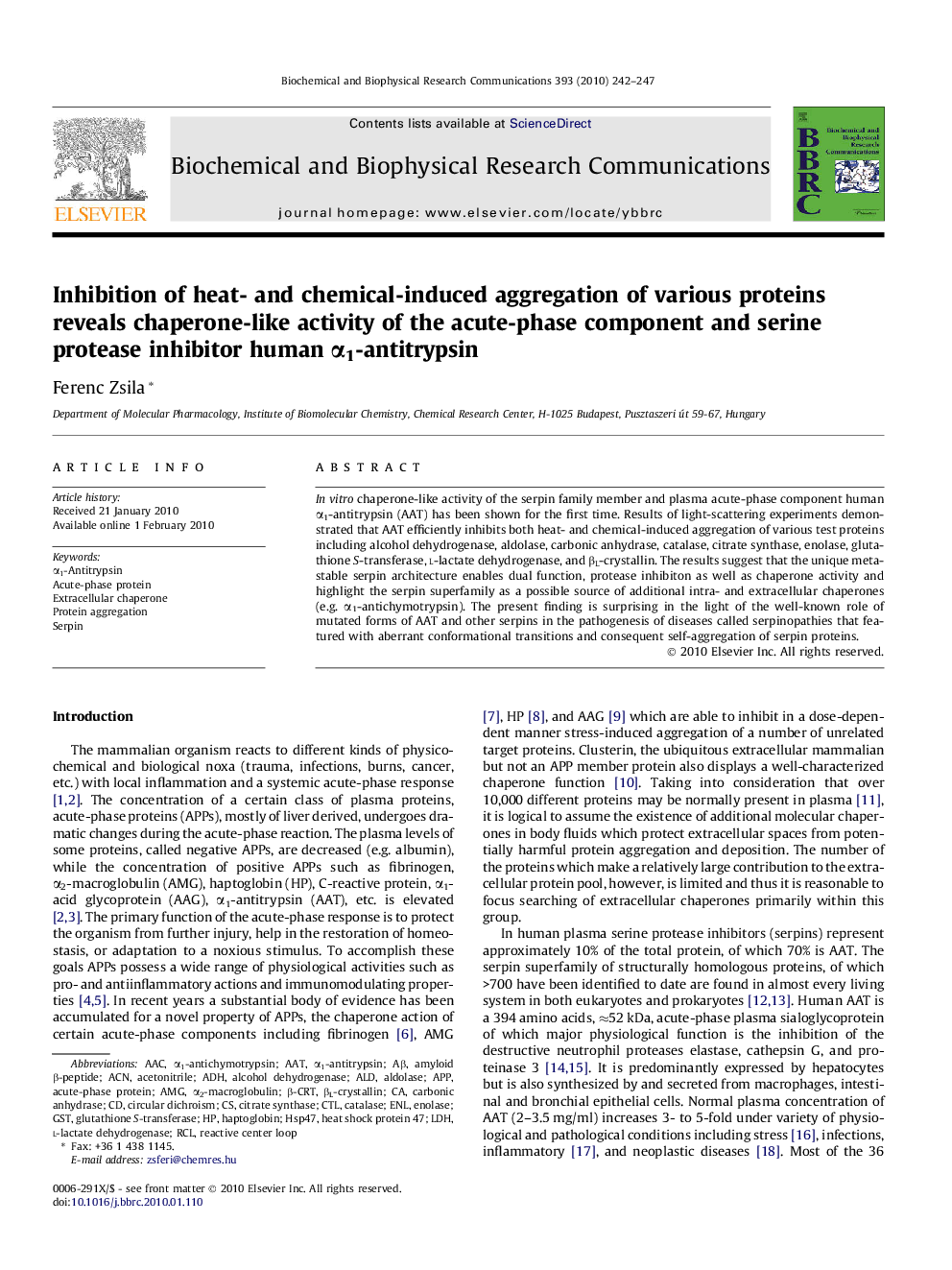| Article ID | Journal | Published Year | Pages | File Type |
|---|---|---|---|---|
| 1932479 | Biochemical and Biophysical Research Communications | 2010 | 6 Pages |
In vitro chaperone-like activity of the serpin family member and plasma acute-phase component human α1-antitrypsin (AAT) has been shown for the first time. Results of light-scattering experiments demonstrated that AAT efficiently inhibits both heat- and chemical-induced aggregation of various test proteins including alcohol dehydrogenase, aldolase, carbonic anhydrase, catalase, citrate synthase, enolase, glutathione S-transferase, l-lactate dehydrogenase, and βL-crystallin. The results suggest that the unique metastable serpin architecture enables dual function, protease inhibiton as well as chaperone activity and highlight the serpin superfamily as a possible source of additional intra- and extracellular chaperones (e.g. α1-antichymotrypsin). The present finding is surprising in the light of the well-known role of mutated forms of AAT and other serpins in the pathogenesis of diseases called serpinopathies that featured with aberrant conformational transitions and consequent self-aggregation of serpin proteins.
